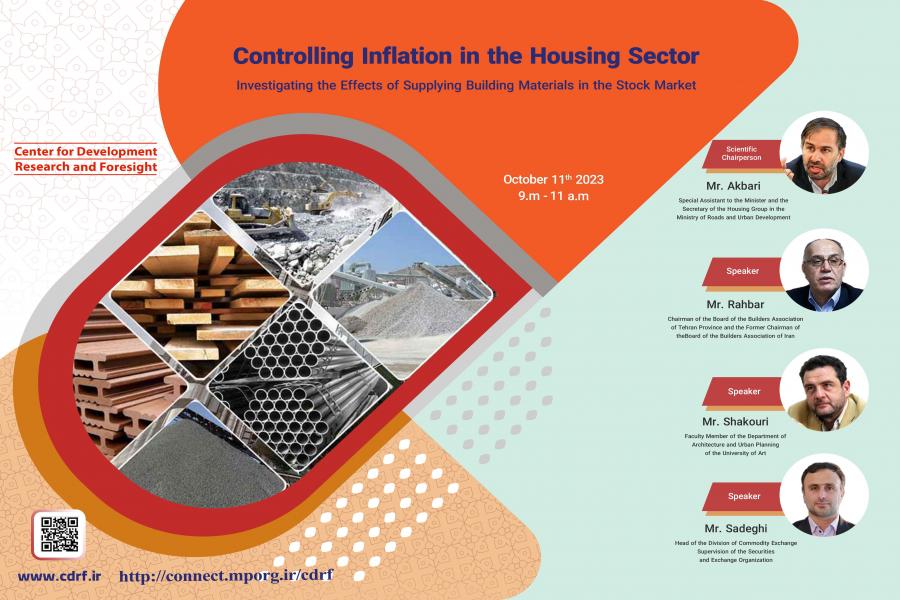
-
بررسی آییننامهها و دستورالعملهای برنامه هفتم پیشرفت
-
بررسی عوامل موثر بر افزایش تصادفات و تلفات جادهای و سوانح رانندگی و دادهکاوی تلفات انسانی
-
سازماندهی و بازآرایی فضایی آموزش عالی کشور
-
به روز رسانی سند ملی آمایش سرزمین
-
انجام مطالعات مناطق آزاد به عنوان نواحی پیشران اقتصادی کشور
-
اصلاح ساختار بودجه و پیاده سازی نظام یکپارچه مدیریت اطلاعات مالی دولت (IFMIS)

The Center for Development and Foresight Research recently organized a specialized conference titled "Controlling Inflation in the Housing Sector: Investigating the Effects of Supplying Building Materials in the Stock Market." The conference was chaired by Mr. Rouhollah Akbari, a special assistant to the Minister and the secretary of the housing group in the Ministry of Roads and Urban Development.
The conference featured several notable speakers, including Iraj Rahbar, chairman of the board of the builders' association of Tehran province and former chairman of the board of the builders' association of Iran; Reza Shakouri, a faculty member of the department of architecture and urban planning at the University of Art; and Alireza Sadeghi, head of the division of commodity exchange supervision at the securities and exchange organization.
As the scientific chairman, Mr. Akbari opened the conference by emphasizing the government's primary objective of improving people's quality of life. He discussed two laws passed in 2008 and 2021 to support housing production and supply. These laws aimed to increase the quantity of housing production, manage supply and demand, and reduce the cost of building houses to make homeownership accessible to all members of society.
Mr. Rahbar, the first speaker, mentioned that these laws primarily aimed to support low-income groups in accessing housing. However, he expressed concern that the method of supplying building materials in the stock market was being reviewed and decided upon in Parliament without consulting experts in the field.
Mr. Shakouri, the second speaker, shared his perspective on housing construction and the entry of building materials into the stock market. He disagreed with the government's approach of building houses for people, instead advocating for empowering individuals through measures like job creation so they can build houses themselves. He argued that empowering people to build houses is a more sustainable model, albeit one that may take longer.
The final speaker, Mr. Sadeghi, highlighted the advantages of the commodity exchange market, specifically the Iran Commodity Exchange. He noted that offering cement and steel in this market had resulted in several benefits, including fair price discovery based on supply and demand, prevention of rent-seeking and profiteering, strengthening of the financial structure for producers, facilitating the implementation of development plans, encouraging private sector investment, strengthening the capital market, eliminating intermediaries, and ultimately reducing prices for consumers.



